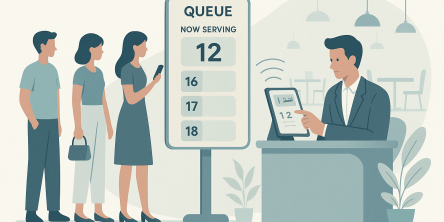The Importance of Emergency Generators for Businesses During Power Outages

Have you ever considered the impact of a sudden power outage on your business? Even a brief outage of energy may cause significant disruptions in today's fast-paced, highly connected society, impacting everything from customer happiness to productivity. Whether brought on by equipment malfunctions, natural disasters, or grid overloads, power outages are not only irritating; they may also be expensive and detrimental to your company's operations.
Investing in an emergency generator is essential to safeguard your business from the unpredictable nature of power interruptions. Let's explore why emergency generators are vital for companies and how they can help you maintain continuity during power outages.
1. Minimizing Downtime and Losses
One of the most significant advantages of having an emergency generator is minimizing downtime during a power outage. In the business world, time is money, and every minute your operations are offline can translate into lost revenue, missed opportunities, and dissatisfied customers.
When the power goes out, an emergency generator kicks in automatically, providing your business with the electricity it needs to keep critical systems running. This immediate response is crucial for companies that rely on continuous power to operate essential equipment, such as:
● Servers and IT Systems: For businesses that depend on data, maintaining power to servers and IT infrastructure is crucial to prevent data loss and maintain communication with customers and employees.
● Manufacturing Equipment: A sudden halt in production can lead to costly delays and waste. It ensures that machinery continues to run, keeping production lines moving.
● Retail Operations: Retail businesses rely on power from point-of-sale systems to refrigeration. A power outage could mean lost sales and spoiled inventory, but a generator can keep the doors open and sales flowing.
Such a device helps protect your bottom line by minimizing downtime and ensuring your business can continue to serve customers without interruption.
2. Protecting Critical Data and Equipment
Power outages can do more than halt operations—they can also damage critical equipment and lead to the loss of valuable data. Sudden power loss, followed by a power surge when electricity is restored, can significantly harm computers, servers, and other sensitive electronics.
How Emergency Generators Protect Your Business:
● Preventing Data Loss: Data is the lifeblood of many businesses. A power outage can result in unsaved work being lost, corrupted files, or even a complete system failure. With this, your IT systems remain powered, reducing the risk of data loss and corruption.
● Avoiding Equipment Damage: Power surges can fry circuits and damage expensive equipment. A generator always provides a stable power supply, protecting your business’s valuable assets from unexpected surges.
● Ensuring Compliance: Maintaining power during an outage is critical for businesses that must comply with regulatory requirements for data security. An emergency generator helps ensure your company remains compliant, even during unexpected events.
3. Enhancing Customer Trust and Satisfaction
Customer trust is built on reliability. When your business can continue operations during a power outage, it demonstrates resilience and reinforces customers.
Key Ways Generators Enhance Customer Experience:
● Uninterrupted Service: Whether you operate a retail store, a medical facility, or a financial institution, continuous service is essential to maintain customer satisfaction. An emergency generator ensures your business can continue serving customers, even during a power outage.
● Maintaining Communication: Power outages can disrupt phone lines and internet connections, cutting off customer communication. A generator keeps communication channels open, ensuring customers can reach you when needed.
● Preserving Product Quality: Maintaining power to refrigeration units is vital for businesses that sell perishable goods. An emergency generator protects your inventory from spoilage, ensuring you can continue providing quality products to your customers.
By maintaining operations and service quality during power outages, businesses can strengthen customer relationships and build a reputation for reliability.
4. Supporting Business Continuity Planning
Business continuity planning is all about preparing for the unexpected, and power outages are one of the most common disruptions businesses face. An emergency generator is a crucial component of any business continuity plan, ensuring your firm can continue functioning during and after an outage.
Benefits of Integrating Generators into Continuity Plans:
● Risk Mitigation: Power outages are a known risk, and having a generator lessens that risk.
● Peace of Mind: Knowing that your business is protected from power outages provides peace of mind.
● Long-Term Savings: While the upfront cost of an emergency generator may seem significant, the long-term savings in reduced downtime, prevented losses, and maintained operations can far outweigh the initial investment.
Emergency generators ensure that your operations continue without interruption, protecting your business from downtime, data loss, and damage while enhancing customer trust and satisfaction. Let's take a proactive step toward securing your business’s future by investing in an emergency generator. With the right generator in place, you can confidently face power outages.
Similar Articles
The modern age of customers expect constant availability, no matter what the offer. And for that, the market requires rapid innovation cycles. In such a high stakes environment, technology infrastructure is more than just a cost center.
When evidence seals fail, cases weaken. Explore how compromised chain of custody can derail investigations and jeopardize justice.
Compare hydraulic and traction residential elevators to find the best fit for your home. Learn how each system works, their pros and cons, space needs, energy use, and maintenance requirements.
Extend the lifespan of your commercial marina docks with proactive maintenance. Learn essential inspection routines, material-specific care, and safety tips to protect your investment and ensure long-term dock performance.
Learn the key factors in designing an engineered fall protection system. Discover how hierarchy of controls, task analysis, structural integrity, and fall clearance ensure safety and compliance.
Today, modern businesses face constant pressure to operate with maximum efficiency. This requires a technology infrastructure that is both agile and robust. However, the traditional model of on-premises data centers often has significant limitations. These legacy systems can drain valuable resources from teams.
When people are hungry, standing in line for a table feels tiring and unpleasant. In fact, research shows that most individuals will just walk away if they have to wait longer. They will go and find another place to eat.
In the early stages of designing new community centers, fire stations and administration buildings, city planners and architects are forced to make a crucial decision: What building material is best suited for providing the most value, safety and longevity to the public?
Amazon Simple Queue Service (SQS), Simple Notification Service (SNS), and EventBridge are just a few of the messaging services that AWS provides to meet various demands when it comes to creating scalable and effective cloud systems.









